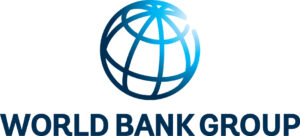WB
The World Bank Group (WBG) is the main multilateral provider of Aid for Trade, development assistance designed to help developing countries more effectively engage in international trade. Experts within the WBG’s Trade and Competitiveness Global Practice are working around the world to help the institution’s clients overcome the obstacles they face. The main pillars of the World Bank Group’s work in trade are:
- Trade Policy and Integration
- Trade Performance
- Competition Policies
- Trade Facilitation and Logistics
World Bank’s work related to trade facilitation and Logistics
The WBG’s trade facilitation and logistics work focuses on Facilitating Trade at the Border, Behind the Border, and Beyond
- The World Bank Group is a leader in logistics performance evaluation, including customs and border control, a key piece of trade facilitation
- The World Bank’s experts produce a range of reports and toolkits for practitioners hoping to improve their countries’ logistics performance and border managemen
In line with twin goals of eradicating extreme poverty and increasing shared prosperity, the World Bank Group works with developing country policymakers and private sector leaders to increase connectivity and facilitate trade. In fiscal year 2013, for example, the World Bank spent approximately $5.8 billion on trade facilitation projects, including:
- Customs and border management
- Streamlining documentary requirements
- Trade infrastructure investment
- Port efficiency
- Transport security
- Logistics and transport services
- Regional trade facilitation and trade corridors
- Transit and multimodal transport
In addition, the World Bank’s trade facilitation experts have developed a range of toolkits, data tools and publications that help developing countries improve their trade facilitation efforts.
These products include a database that provides a comprehensive cross-country benchmark for logistics performance, a diagnostic toolkit for trade and transport facilitation, a book that addresses the magnitude and nature of logistics costs borne by landlocked developing countries, and a series of handbooks that tackle the issue of streamlining customs and border clearance procedures through comprehensive border management reform.
Customs and Border Management
The current trade portfolio includes approximately $300 million in customs-related operations and technical assistance programs.
In recent years the portfolio has expended to include trade facilitation work with other border management agencies involved in processing and clearing goods. Increasingly this work has involved the application of ICT to support increased transparency and efficiency and to support collaborative border management approaches. The group is also engaged heavily in supporting implementation of the new World Trade Organization (WTO) Agreement on Trade Facilitation and the adoption of other international standards.
Reports and Studies
- The Logistics Performance Index (LPI) Report and Database
- Trade and Transport Facilitation Audit (TTFA)
- Cost of Being Landlocked
- Border Management Modernization
- Unlocking Trade for Low-Income Countries: Report of the Trade Facilitation Facility,2009-2015
- TRUST FUND
- Trade Facilitation Support Program (TFSP)

